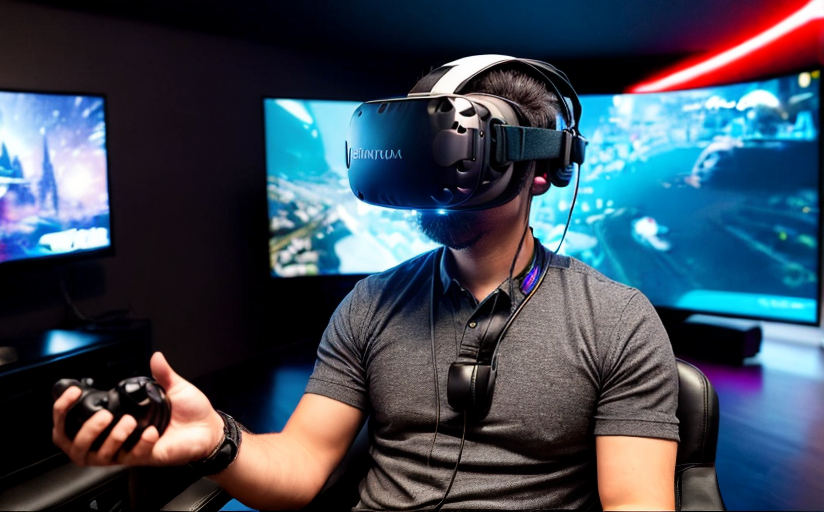Virtual Reality and Its Rising Impact on the Modern Entertainment Industry
The rapid technological advancements in the modern era have fundamentally transformed the landscape of the entertainment industry. At the forefront of these transformations is the revolutionary Virtual Reality (VR) technology, which is increasingly becoming a game-changer across various entertainment sectors including gaming, films and live entertainment.
VR in Gaming
There is no denying that the gaming industry has been significantly influenced by VR technology. Video games, once dominated by physical controls and two-dimensional interfaces, have now transitioned into immersive, 3D environments turning fantasy realms into tangible realities for users. Games like 'Beat Saber', 'Half-Life: Alyx' and 'Superhot VR' are providing fully immersive experiences, changing the way gamers interact with these virtual worlds.
VR in Films and Television
Similar to its impact on the gaming scene, VR is revolutionising the film and television industry. It is allowing directors and producers to create movies and series that completely immerse audiences in the plot, making them an integral part of the narrative. One outstanding example of this trend is ‘The Lion King’ remake, which used VR technology to simulate a natural environment for animals that were later added using computer graphics.
VR in Live Entertainment
Live entertainment has also not been left behind in this VR revolution. Concerts, theatre performances and even sports events are now being broadcasted in VR, allowing viewers across the globe to 'attend' these events virtually. VR transforms the viewer's surrounding into the event scene, giving them a sense of presence which was previously only possible through physical attendance.
Potential Challenges
Whilst VR continues to carve a niche for itself in the entertainment industry, it presents several challenges. Top among these obstacles is the costs associated with owning VR devices, which are currently relatively high for mainstream consumer use. Also, concerns related to health and safety, such as motion sickness and eye strain, continue to present significant hurdles to VR's proliferation.
Future Implications
In spite of these challenges, the future of VR in the entertainment sector looks promising. Tech companies are continuously investing in research and development to overcome these obstacles. As technologies evolve, we can expect VR to become more accessible, affordable and immersive. Thus, it is not only going to redefine the entertainment industry but also become a significant part of it.
Indeed, VR is steadily transforming the way we define and interact with entertainment. As we move forward, it is fascinating to envision a future where VR integrates seamlessly into our daily entertainment consumption, providing us with experiences that we currently only dream of.

















Comments
Leave a Comment